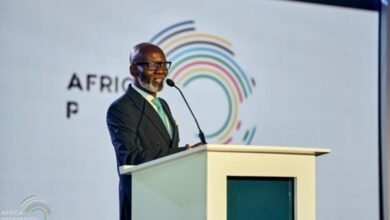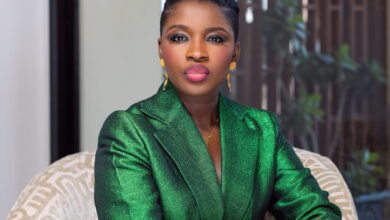The World Economic Forum (WEF) unfolds this winter in the Swiss Alpine resort of Davos, as is customary before the COVID 19 pandemic. African personalities have once again travelled, for bilateral talks, but also to perpetuate the momentum of Macky Sall’s plea. Defending the continent’s rank to finally sit at the table of global decision makers.
By Mérième Alaoui
The World Economic Forum (WEF) is coming to Davos, the highest city in Europe, for the 53rd edition this winter. Cancelled in 2021, then organized last spring in an exceptional way, it is the Founder and Executive Chairman of the World Economic Forum, Klaus Schwab, who opened all the events on January 16 and will close them on January 20.
« We need to recognize that economic development needs to be made more resilient, more sustainable and that no one should be left behind »
While the war in Ukraine is still raging at the gates of the European Union, and the effects of climate change are increasingly felt, the Forum ‘s theme « Cooperation in a Fragmented World », seeks to redefine economic relations in this rapidly changing new world order. This is especially after the lifting of restrictions in China. But also, and most importantly, producing public-private solutions to these challenges. « We see that multiple political, economic, and social forces are creating increased fragmentation at the global and national levels. To address the root causes of this erosion of trust, we must strengthen cooperation between governments and businesses, creating the conditions for a robust and sustainable recovery. We must, at the same time, recognize that economic development must be made more resilient, more sustainable and that no one should be left behind, » said Klaus Schwab.
This year, some 30 heads of state and government have attended the event, but no American president, no Chinese president (represented by Vice-Premier Liu He), no French president, and certainly not the newly elected Brazilian Lula. The German Chancellor Olaf Scholz, the UN Secretary General Antonio Guterres, the NATO Secretary General Jens Stoltenberg, the President of the European Commission Ursula von der Leyen and others are present. Like last year, President Volodymyr Zelensky will speak by video conference.
“The singular diversity of African positions towards this conflict [in Ukraine] is an indicator of the specific place the continent tends to occupy in the global political setup”
On the side of African decision makers, Cyril M. Ramaphosa, who had confirmed his presence, had to cancel the travel because of a serious energy crisis in his country, Felix Tshisekedi, President of the Democratic Republic of Congo, Samia Suluhu Hassan, President of Tanzania, Najla Bouden, Head of Government of Tunisia, have arrived in Switzerland. Niger is also represented by its President Mohamed Bazoum … Among the highlights is a special address by Aziz Akhannouch, head of government of the Kingdom of Morocco.
While the official announcements are scrutinized by the international press, the Forum is best known for its fruitful negotiations in the margins of the quite lounges and conferences. Thus, this 2023 edition is presented as the one that brings together the most companies with more than 600 CEOs of multinationals.
For African decision-makers, « it is also an opportunity to test their negotiating skills in a context of global geopolitical restructuring, whose reality is better measured in the context of the war in Ukraine. The singular diversity of African positions towards this conflict is an indicator of the specific place that the continent tends to occupy in the global political setup. It is now up to African leaders to confirm this trend and clarify their strategies in order to increase the continent’s room for maneuver on the international scene, both diplomatically and economically, » argues Francis Laloupo, journalist, essayist, geopolitics teacher and associate researcher at IRIS.
“Increasing Africa’s representation in G20 deliberations will allow for continuity and more responsive engagement”
African decision-makers and entrepreneurs all have the last G20 in mind. And the vibrant plea of Macky Sall, in his capacity as current chairperson of the AU, who called for the integration of the pan-African organization into this group. Considering that such an arrangement would strengthen global economic governance. « The presence of Africa as a permanent member through the African Union will strengthen the G20. Increasing the continent’s representation in G20 deliberations will allow for continuity and more responsive engagement, » Egyptian Finance Minister Mohamed Maait, Ken Ofori-Atta, Ghana’s Minister of the Economy, and Amadou Hott, Senegal’s Minister of the Economy, said in a letter to G20 Finance Ministers and Central Bank Governors. A request that appears to be all the more obvious now that all the countries of the continent represent the 8th largest economy in the world. « France and the United States, in particular, have given their support to this African request, » said Francis Laloupo.
« Such summits should be seen as an opportunity to express and above all clarify the political and economic orientations of the continent »
After the G20, Davos is therefore the next major meeting that allows Africans to reaffirm their position. Though « we should not expect anything spectacular for Africa, the fact that it is represented logically illustrates its participation in the mechanisms of globalization. Such summits should be seen as an opportunity for African decision-makers to express and above all specify the political and economic orientations of their continent, as well as the strategic choices that underlie them, » adds the journalist and essayist.
An African presence that can be enhanced through agriculture in this global context of dearth. One of the conferences organized at the WEF is entitled « Realizing Africa’s Century », recalling that Africa is the youngest and fastest-growing continent. Moreover, it holds 65% of the world’s remaining uncultivated arable land, has vast renewable energy potential and an abundance of the minerals critical to the energy transition.
Before the war in Ukraine, Egypt, for instance, imported 61% of its wheat from Russia and 23% from Ukraine. African private actors and political representatives must explore all means to replace this dependence.
At the last Forum in May, Emmerson Mnangagwa, the President of Zimbabwe, had already announced major investments in the agricultural sector. As did other delegations from African countries, including Rwandan President Paul Kagame, who called for a convergence at the African Union (AU) for a common agenda on food sovereignty.
Today, Africa processes only 20% of the raw materials it consumes due to a lack of infrastructure. If inter-African trade has reached a ceiling of 20%, the objective is to increase it to 50% by 2030. Davos is a privileged place to negotiate with investors from around the world. The Africans therefore plan to continue their mission of persuasion for themselves, but also for the global economy.






